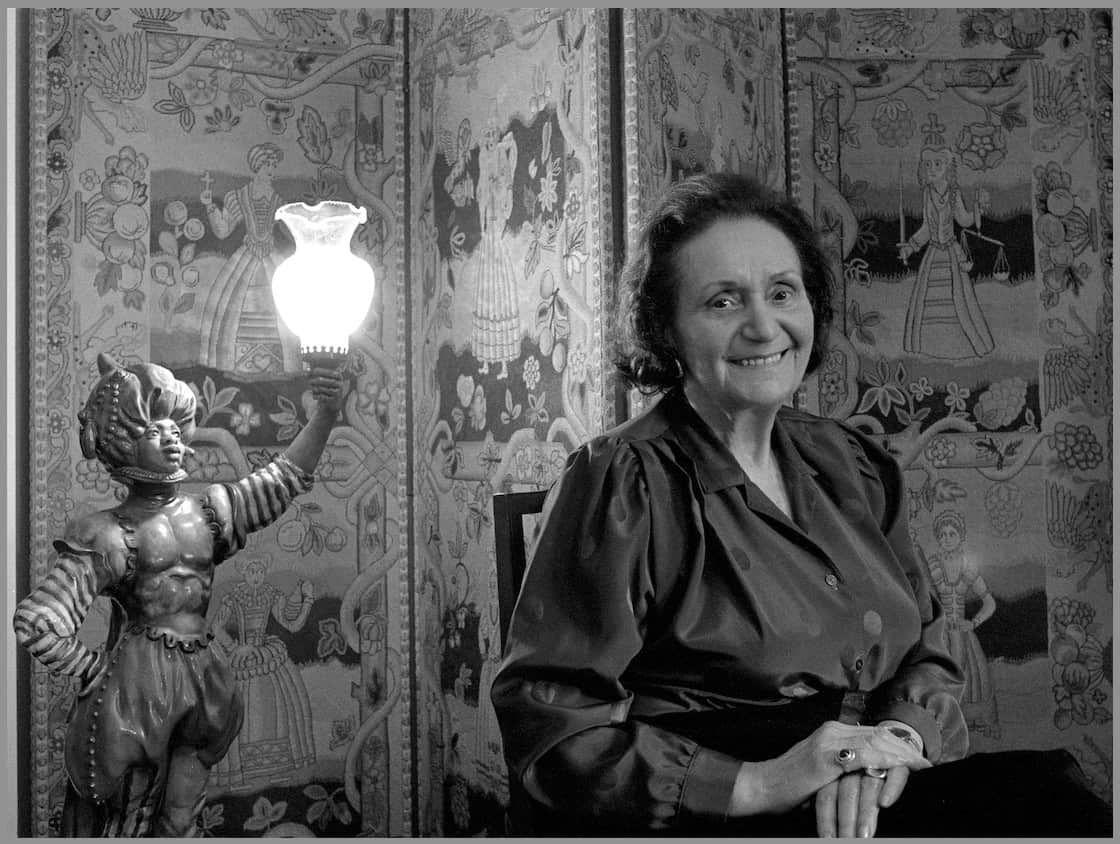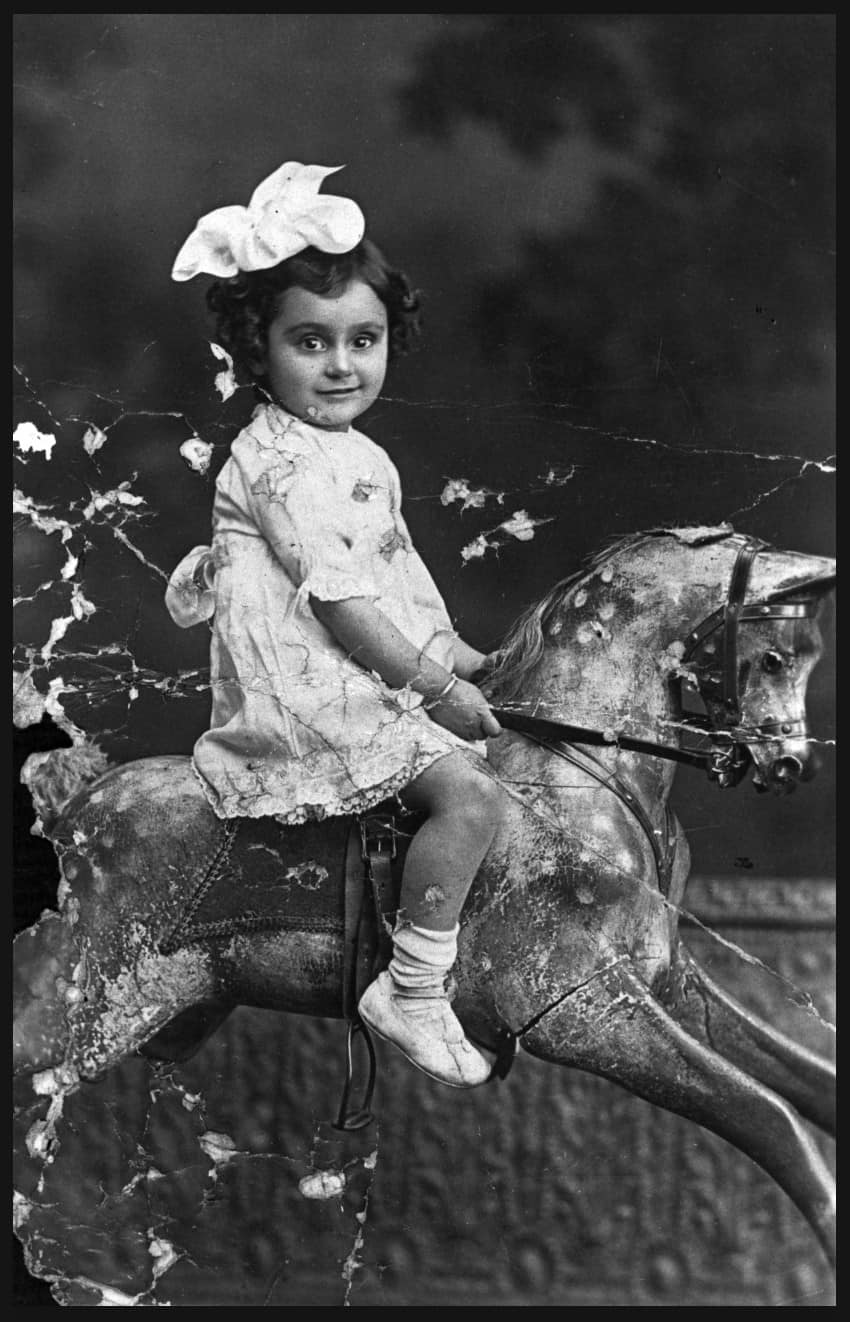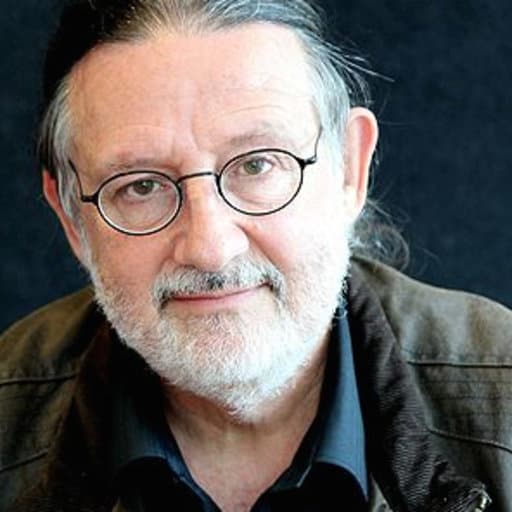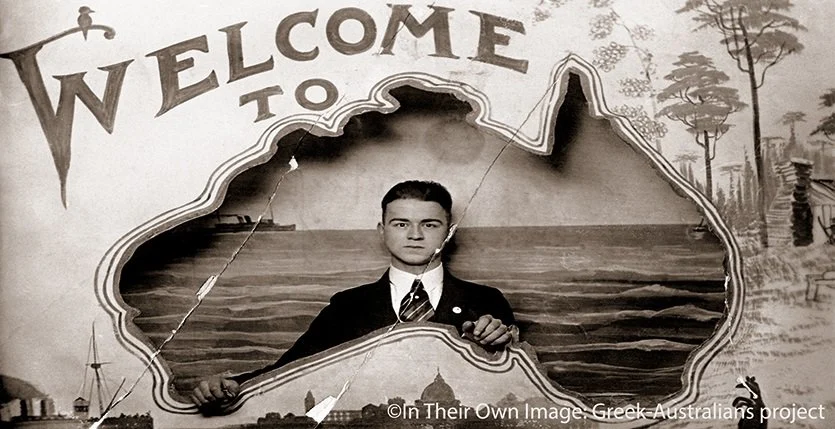Greek City Times is proud to present a weekly historical snapshot
from the archives of the ‘In Their Own Image: Greek Australians’ national project
by photographer Effy Alexakis and historian Leonard Janiszewski.
Nina Black was an educationalist and dance instructress of considerable renown within Melbourne’s Greek community.

Nina (Regina) was born in 1916 – she was one of five siblings (John, Marguerita, Ellie, Nina and Olga). Her family was originally from the Greek Ionian island of Ithaca, the earliest arrival being her uncle, Dennis Black (Dionysios Mavrokefalos). Dennis had migrated to Melbourne in 1892. The surname was anglicised and abbreviated from the original, Mavrokefelos, which literally translates in English as ‘black head’. Dennis sent for his younger brother, Constantine – Nina’s father – once he had established himself in Melbourne’s café food-catering industry. Arriving in 1902, Constantine initially worked for his eldest brother but returned to Greece to fight in the Balkan Wars of 1912-13. When he returned to Melbourne in 1914, he brought his new bride, Toula (Efstathia) née Raftopoulos, with him – they had been married in the village of Exoghi on Ithaca. Constantine served a period as President of the Greek Community of Melbourne and he and Toula successfully operated the Paris Residential Café in Swanston Street Melbourne until the Great Depression struck.
Nina’s intense joy and enthusiasm for teaching and dance instruction enshrined her as an iconic creative, cultural figure within Melbourne’s Greek community during the twentieth century. Interestingly, Nina considered her socio-cultural identity to be fluid, depending upon what was required within the socio-cultural environments she encountered.
“I never felt that I was a stranger with Australians [British-Australians]. I never felt I was a stranger with Greeks… I could quite easily move from one sphere to the other… I suppose I don’t specifically think of myself as being Greek, but then I don’t specifically think of myself as being Australian either… I think that was due to the fact that we learnt to speak properly when I was at the first school, which was run by an English woman… When I’m in a Greek society I become Greek… I have an understanding of both cultures shall we say… I can pretend to be a Greek and I can pretend to be an Aussie… and I can pretend to be English too! … I would miss the Greek part of me if I wasn’t able to communicate with Greeks, and if I never saw Greeks, I would miss that. But then again, I miss the Australian too… I enjoy being with the Greek people. I enjoy going to the Greek church and seeing everybody at Easter time… I was watching everybody coming in… it was wonderful to see… how many families there are and their children are quite Greek really… and I think that that’s an achievement – that we haven’t lost either culture. Now I’m quite sure that the young girls there, and the young boys, were able to say ‘G’day. How are you mate?’… if you regard that as culture. I don’t know. But as far as I’m concerned, it’s not that I would pretend to be either one or the other, it’s what the situation demands of me… I think that that’s really what it’s all about.”

Nina passed away in 2002.
Photos: Effy Alexakis
Historical Research: Leonard Janiszewski
© In Their Own Image: Greek-Australians National Project Archives


Since the early 1980s, Effy Alexakis, a photographer, along with historian researcher Leonard Janiszewski, have been travelling around Australia photographing and collecting stories. They have also photographed Greek-Australians in Greece and documented some amazing histories. The images and text provide personal, diverse and powerfully moving insights, about opportunities, hopes and challenges. Collectively, these stories provide personal perspectives of a diasporic Hellenic identity. Their archive encompasses photography, both historical and contemporary, taped interviews and literary materials.
They have published 3 books and numerous articles, and their projects are ongoing. The photographs have been widely exhibited throughout Australia and in Greece.
VISIT THEIR LATEST PROJECT: Greek Cafés & Milk Bars of Australia | Facebook


